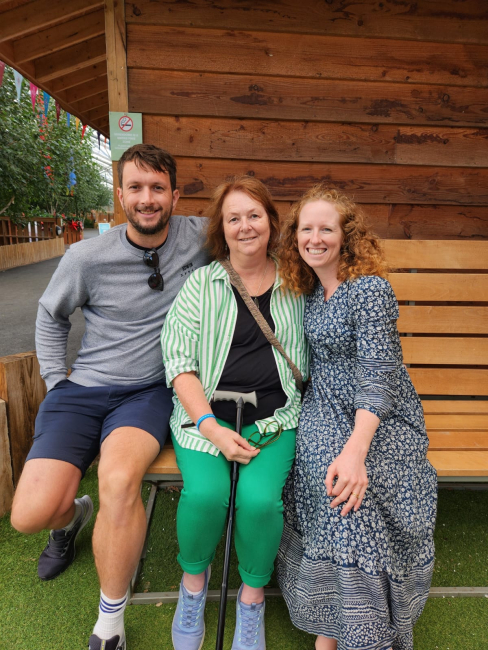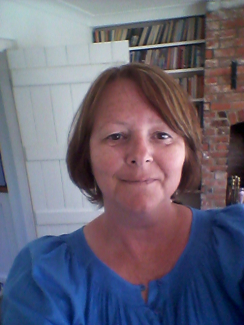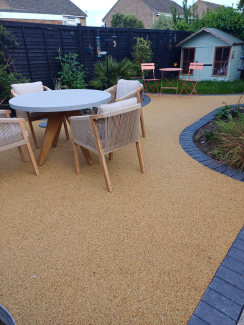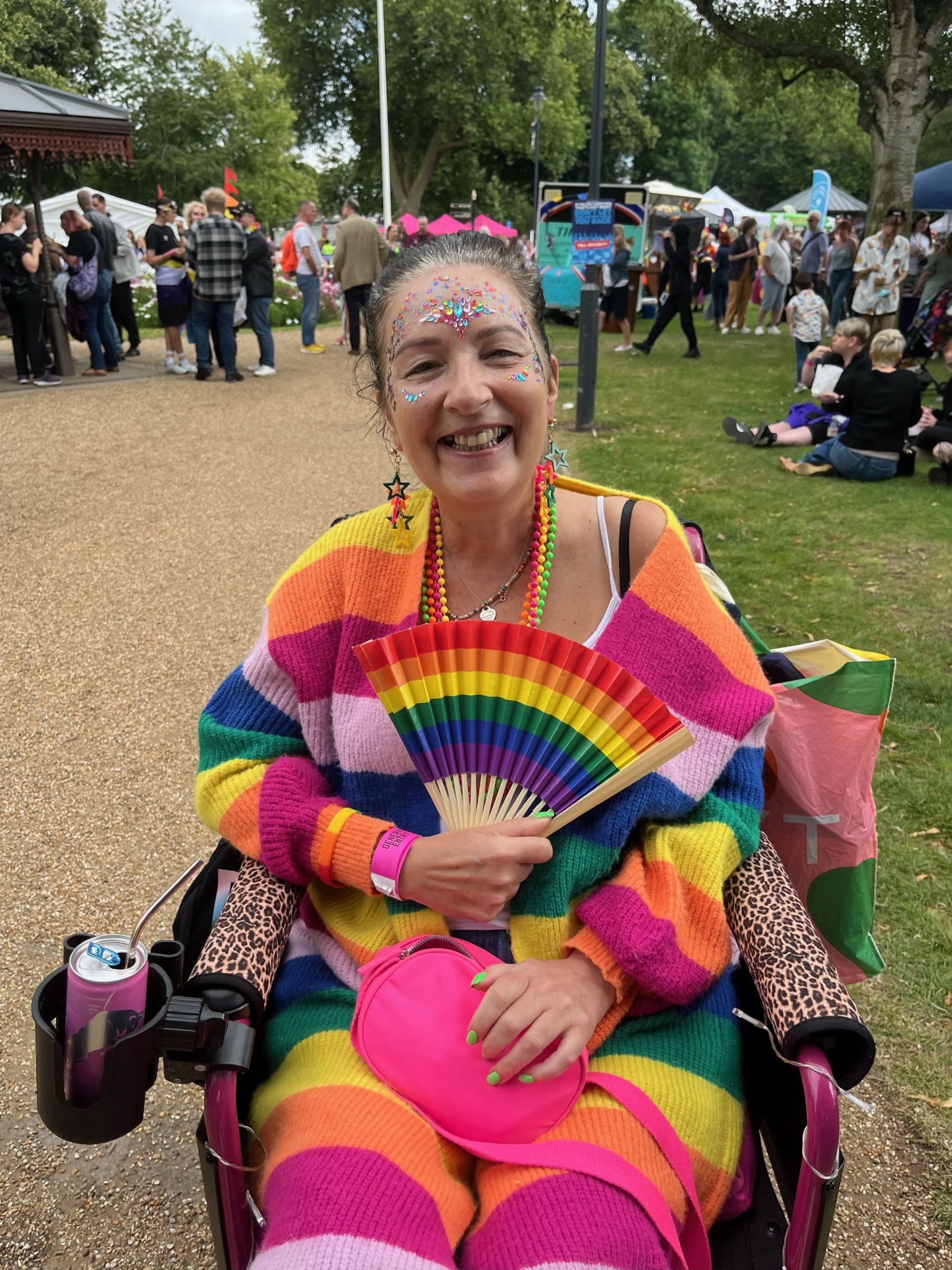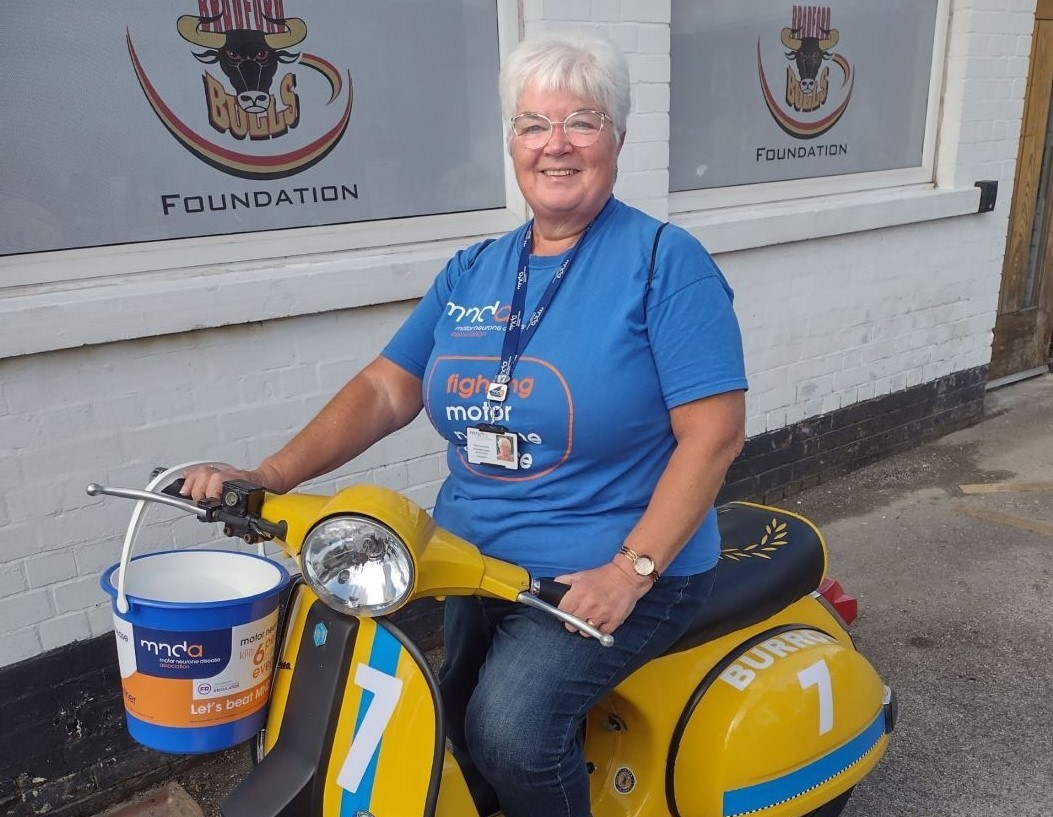November 2025 Support grants
Meet Diana...
Diana, a former education administrator, shares her journey with MND. Initially, Diana was told her symptoms were down to stress, but after she received a formal diagnosis of MND and her symptoms progressed, Diana made the difficult decision to retire early. Here, she talks about the support she received from family, friends and the MND Association. Diana has received financial support grants to help manage the impact of MND and used some of these funds to renovate her garden, making it safe and accessible.
Diana shared her experiences with us in October 2024.
Life before MND
"I was really looking forward to life after divorce, then everything came to a stop."
My name is Diana and I’m 64 years old. I’ve worked in education as an administrator for 25 years. I’m single, with two children and I live alone. My life before MND was full. I got divorced six years ago after 36 years of marriage, and I worked full-time in a primary school as an administrator. I’ve got two amazing children, Alasdair who is an Associate Assistant Principal at a secondary school and my daughter, Megan, who is a Paediatrician. I also have three beautiful grandchildren, with two more on the way.
I love interior design, so a few years ago I did a course and ran a small business advising people on colour and style. I had a little caravan that I was really hoping to explore in. I learned how to tow it and everything! I was really looking forward to life after divorce, but then everything came to a stop 18 months ago. It’s been tricky, but I count my blessings, of which there are many.
Early symptoms and diagnosis
"Eventually, after about three years, he called me back and told me he thought it was MND."
Some of the early symptoms started after I moved into my bungalow. I started falling over for no reason, I noticed lots of twitching in my arms and limbs, and my voice started sounding different. It didn’t sound like my own and I was struggling with fluency. I’ve always been quite outspoken and I used to quip a lot, but I found I couldn’t do that quickly enough.
I went to my GP who referred me to the Consultant Neurologist at the local hospital. He saw me two or three times over two or three years, and he felt that my symptoms were due to stress from my divorce, but I couldn’t accept that because I’ve always been a very positive person. I’ve suffered from depression, so I know how that feels, and the issues I was having were physical. Eventually, after about three years, he called me back and told me he thought it was MND. That was May 2023, and obviously, it was a huge shock.
My diagnosis took so long because my symptoms were progressing slowly. I was referred to a speech therapist, but they thought my vocal cords were just wearing out. It was a long process and it was quite frightening. I couldn’t quite figure out whether I had MND, MS, or if it could have been a complication from COVID.
When I was first diagnosed, the words motor neurone disease were so frightening. The first thing that popped into my head was, ‘how am I going to manage living on my own?’ I was terrified. Fortunately, my daughter-in-law was with me - it had been a last-minute decision for her to come. The consultant gave me some information about the clinic, but I was in no state to absorb anything that day. I went back to work the next day, almost in disbelief.
Processing the diagnosis
"It’s hard when you don’t have a clear prognosis.... It makes it really hard to plan or get on with life."
The diagnosis was a huge shock, and fear was my initial reaction. I’ve always been very independent, and I found myself focusing on all the practical things, like how I would manage on my own. It’s hard when you don’t have a clear prognosis, as some people live with MND for 15 years while others progress quickly. It makes it really hard to plan or get on with life.
Eventually, I found work was getting harder. Kneeling down to put plasters on children’s knees was becoming increasingly difficult and the children started noticing my voice. I also found my typing wasn’t as fast, so I decided to take a bit of time off and stopped working at the end of November 2023. I haven’t managed to go back to work since then, so this year, I’ll be retiring on ill health after 25 years as a School Administrator. It’s the best job in the world, and I’m quite sad to leave it. But I’m hoping that once I’m officially retired, I’ll feel more positive about the future. I have a lot of lovely people around me, so that’s a real blessing.
Association support
"Knowing the Association is there makes such a difference."
Since my diagnosis, we’ve been incredibly fortunate in this area because the local MND clinic at the hospital has been amazing. They’ve been so supportive along with the MND Association. I have an Association Visitor called Emma and she’s just the best. She’s really good at being pragmatic and I can explore things with her before taking them to my family. She's really good at problem solving and she's given me a card to put in my phone from the MND Association that I read to people so that it takes any embarrassment off the fact I struggle with my voice. She's amazing at helping with those practical things.
She’s also helped me apply for grants from the Association. For example, I had a grant for a wash-and-dry toilet because I was really conscious about being able to maintain my personal hygiene. I’ve also received grants from the Association to help cover essential costs like maintaining my home and garden. I landscaped my garden for accessibility and safety so I can still enjoy it and spend time outside. The grants have also helped with some
other aspects of life, like paying for a pedicure every six weeks. I can’t reach my toes anymore so it’s a nice way to maintain some dignity and ensure I don’t let myself go because you do lose yourself with MND. Taking care of myself is important to me, and I try to encourage other people with MND to access the services that are available. Some people feel ashamed, and that's really sad when little things - like buying a National Trust membership for example - really helps and gives you some joy back.
The MND Association have funded an alert alarm linked to the council. I wear the alarm on my wrist, and I've got a box in my living room. If I press the alarm button, the council can talk to me and they've got contact numbers they can phone in an emergency. They've got my children's numbers and if they can't respond the council will send someone. It's a security for my children not to worry and the alarm reaches to the bottom of the garden.
Knowing the Association is there makes such a difference. I've always worked and I do feel a lot of guilt for having to claim benefits, so I feel the MND Association is there for people it’s named for. I've got MND so I can access the grants because people have donated for people like me, so it releases the guilt a little bit. The MND Association has been crucial in providing assistance, and I’m so grateful for that.
I’m lucky that I have a local MND support group, and it’s lovely to feel part of other people’s journeys. I’m very keen to raise awareness, so I’ve been invited to join the local hospital’s steering group. It’s been great to use my skills to advocate for others with MND.
Friendship
"I've realised if you put yourself in their shoes, you would want to help too."
Since being diagnosed, some of my friends and colleagues have been fundraising for the MND Association which has been incredibly heartwarming. My son did the 'Run 60 miles in August' challenge and raised over £2,000. The headteacher at my school and a learning support assistant ran the Bristol Marathon for the Association too. It’s lovely to know that people are working hard to raise awareness and funds for those of us with MND.
Living with MND is tough and I’ve had to make adjustments to my life. I've got a group of friends who want to help, and it's quite hard to find something for each of them to do. It's been so lovely and I'm really lucky. I've realised if you put yourself in their shoes, you would want to help too, and I think that's easily forgotten. When you've never been the needy one you almost have to learn that asking for help is okay. People love to feel useful, and it's really nice to be able to say, ‘bring lunch’ or ‘can you grab me some milk?’, because people want to be able to feel they are doing something useful.
Advice for others
"Always remember to be kind to yourself."
If I could give advice to someone who has just been diagnosed with MND, I would say it’s a shock, so be kind to yourself. The emotional ripples are huge, and it’s okay to be frightened. Don’t be afraid to explain how you feel to others, because that’s how they’ll know how to help you. There’s a lot of support out there, but you have to be ready for it.
And always remember to be kind to yourself. I wake up some days feeling angry, and that’s okay. Those feelings pass. You don’t have to think too far ahead. Take it one day at a time.
